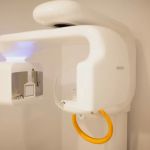The Best Way to Clean Your Dental Tools: A Complete Guide for Proper Maintenance
- 1. Why Cleaning Your Dental Tools is Crucial
- 2. The Best Way to Clean Your Dental Tools
- 3. Common Mistakes to Avoid When Cleaning Dental Tools
- 4. Recommended Products for Cleaning Dental Tools
- 5. Tips for Maintaining Your Dental Tools
- 6. How Often Should You Replace Your Dental Tools?
1. Why Cleaning Your Dental Tools is Crucial
Dental tools are essential for maintaining oral hygiene, both for professionals and individuals performing their own at-home care. Whether you're using dental tools for your personal care routine or as part of professional practice, it is essential to clean them properly. Clean dental tools help prevent the buildup of bacteria, plaque, and debris, ensuring that your teeth stay healthy and your tools remain functional.
Neglecting to clean dental tools can lead to a host of problems, including infections, damage to the tools themselves, and a decrease in their effectiveness. Regular cleaning also extends the lifespan of your tools, ensuring that they provide optimal performance for years to come. In this guide, we will explore the best practices for cleaning dental tools, common mistakes to avoid, and essential maintenance tips.
2. The Best Way to Clean Your Dental Tools
Cleaning your dental tools requires care and attention to detail to ensure they are free from harmful bacteria and debris. Here’s a step-by-step guide to cleaning your dental tools effectively:
- Wash Immediately After Use: After using your dental tools, wash them as soon as possible to prevent any buildup of bacteria or plaque. Use warm water and mild soap to clean the tools thoroughly.
- Use a Disinfectant: Once the tools are cleaned, it's important to disinfect them. Use a dental tool disinfectant or a solution of 70% isopropyl alcohol to wipe down the handles, tips, and any surfaces that came into contact with your mouth.
- Scrub for Stubborn Debris: If there is any stubborn debris or tartar on your tools, use a soft-bristled brush, such as a toothbrush, to gently scrub them. Avoid using harsh or abrasive materials, as they could damage the tools.
- Rinse and Dry: After disinfecting, rinse the tools with clean water to remove any excess disinfectant. Finally, allow the tools to air dry or use a clean towel to dry them thoroughly before storing them away.
By following these simple steps, you can ensure that your dental tools remain clean, safe, and ready for use whenever needed. It's important to follow this process regularly to maintain proper hygiene and extend the lifespan of your tools.
3. Common Mistakes to Avoid When Cleaning Dental Tools
While cleaning dental tools seems straightforward, many people make common mistakes that can compromise the effectiveness of their cleaning efforts. Here are a few key mistakes to avoid:
- Using Harsh Chemicals: Avoid using harsh chemicals or bleach when cleaning dental tools, as they can degrade the materials and harm the tools over time. Stick to recommended cleaning agents and disinfectants designed for dental use.
- Improper Drying: Not properly drying your dental tools can cause rusting or mold growth, especially if you leave them damp or store them in a humid environment. Always ensure they are completely dry before putting them away.
- Not Cleaning Regularly: Failing to clean your dental tools after every use can lead to the buildup of bacteria and plaque, making them ineffective and potentially harmful. Clean your tools immediately after each use to avoid these issues.
Avoiding these mistakes will help you maintain the effectiveness and longevity of your dental tools, ensuring they perform well for years to come.
4. Recommended Products for Cleaning Dental Tools
Using the right products is essential for properly cleaning your dental tools. Here are some of the best products you can use:
- Dental Tool Disinfectants: Products like CaviCide or Barbicide are specifically designed to disinfect dental tools and are commonly used by professionals.
- Antibacterial Soap: A mild antibacterial soap is perfect for washing dental tools, as it effectively removes dirt and bacteria without causing any damage.
- Soft-Bristled Brushes: Use soft-bristled brushes to scrub your tools gently. Avoid using metal or abrasive brushes, which can scratch or damage the surface of the tools.
- Alcohol Solution: An alcohol solution (preferably 70%) is an excellent disinfectant and can be used to clean the surface of your dental tools after washing them with soap.
These products are widely available online or at dental supply stores. Make sure to choose the right products based on your specific needs to ensure your tools are cleaned safely and effectively.
5. Tips for Maintaining Your Dental Tools
Proper maintenance is key to keeping your dental tools in good condition and ensuring they function properly. Here are some tips for maintaining your dental tools:
- Store Tools Properly: Store your dental tools in a dry, cool place, away from direct sunlight or moisture. A tool holder or storage case can help keep them organized and safe from damage.
- Inspect Tools Regularly: Periodically inspect your tools for signs of wear, rust, or damage. If you notice any issues, it's best to replace the tool to avoid using damaged or ineffective equipment.
- Sharpen Tools as Needed: Some dental tools, like scalers or probes, may need sharpening over time to maintain their effectiveness. Consider professional sharpening services if necessary.
By following these tips, you can keep your dental tools in top condition, ensuring they continue to perform well for all of your dental hygiene needs.
6. How Often Should You Replace Your Dental Tools?
Knowing when to replace your dental tools is important for maintaining your oral hygiene routine. While some tools, like toothbrushes and floss, are replaced regularly, others may need replacement based on their wear and tear. Here’s when to replace some common dental tools:
- Toothbrushes: Replace your toothbrush every 3–4 months or sooner if the bristles are frayed.
- Dental Probes and Scalers: If these tools show signs of damage or dullness, it’s time to replace them to ensure optimal performance.
- Water Picks: If your water flosser or oral irrigator is no longer functioning well, consider replacing it for better hygiene results.
Replacing your dental tools as needed will ensure you continue to maintain good oral hygiene and avoid potential issues from using worn-out tools.
Conclusion
Keeping your dental tools clean and well-maintained is essential for good oral hygiene and the longevity of your tools. By following the best practices for cleaning, avoiding common mistakes, and using the right products, you can ensure that your dental tools remain effective and safe for use. Regular maintenance and timely replacements will help keep your tools in great condition, ensuring you have everything you need for a healthy smile. For more information on dental tools and cleaning products, visit Dentistry Toothtruth.







 Orchard Dental Group5.0 (163 review)
Orchard Dental Group5.0 (163 review) Dr. Jose Gallegos, DDS5.0 (122 review)
Dr. Jose Gallegos, DDS5.0 (122 review) Beam Dental5.0 (13 review)
Beam Dental5.0 (13 review) Capital City Pediatric Dentistry3.0 (41 review)
Capital City Pediatric Dentistry3.0 (41 review) Root Cause Dentistry- Biological Dentist0.0 (0 review)
Root Cause Dentistry- Biological Dentist0.0 (0 review) Family Dentistry of Westford4.0 (19 review)
Family Dentistry of Westford4.0 (19 review) The Importance of Oral Health Education During Pregnancy for a Healthy Pregnancy
The Importance of Oral Health Education During Pregnancy for a Healthy Pregnancy Best Tips for Brushing Your Teeth Properly for Healthy Gums: Essential Techniques for Oral Health
Best Tips for Brushing Your Teeth Properly for Healthy Gums: Essential Techniques for Oral Health Why Skipping Dental Checkups Can Lead to Bigger Oral Health Problems
Why Skipping Dental Checkups Can Lead to Bigger Oral Health Problems Advantages of Porcelain Dental Restorations
Advantages of Porcelain Dental Restorations How Can Diabetes Cause Tooth and Gum Problems? Preventing and Managing Oral Health Issues
How Can Diabetes Cause Tooth and Gum Problems? Preventing and Managing Oral Health Issues Healthy Habits for Promoting Good Oral Health and Hygiene: Tips for a Healthy Smile
Healthy Habits for Promoting Good Oral Health and Hygiene: Tips for a Healthy Smile